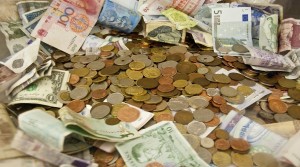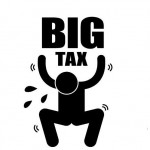Analysis, Financial Planning, Politics
What the UK Election Result Means for Expats

As the Queen confirmed David Cameron’s second term as Prime Minister of the UK, the cloud of political and financial uncertainty lifted, and investors are now hoping to reap the benefits. In the housing industry, expats who have invested in UK property should start to see a more aggressive rise in prices. With no threat […]
Eurozone, Government Changes, Great Britain, Great British Pound, Stock Market, UK, UK General Election 2015, World Economy
Analysis, Financial Planning, Market Watch
Eurozone Not Viable

One of the UK’s most successful fund managers has warned that the eurozone is not viable in its current form. Neil Woodford, who set up his own investment fund last year, said that the concept of treating Greece like Germany was “fundamentally flawed”. In addition, Mr. Woodford said that continuing uncertainty over Britain’s EU membership […]
Eurozone Growth Forecast Increased

There is good news coming out of Europe for a change as The European Central Bank has raised this year’s growth forecast for the Eurozone. The growth forecast has grown from 1% to 1.5% for the year ahead. The ECB has also said that it will begin its quantitative easing programme next week that was […]
ECB Bond-Buying Legal

Official figures have shown, inflation in the eurozone has turned negative, with prices in December 0.2% lower than the same month a year earlier. The tip into deflation adds pressure on the European Central Bank (ECB) to take further action to stimulate the area’s economy. Recent news could be a step towards the necessary stimulation, […]
Growth Prediction Cut by World Bank

The forecast for global growth has been cut by The World Bank as it warns that the US cannot drive economic recovery alone. In June, the bank forecast 3.4% growth this year and 3.5% next year, however they have revised those figures in the latest report to 3% for this year and 3.3% next year. […]
Swiss Banks To Introduce Negative Interest Rates

Switzerland, the world’s safe haven, will bring in a negative interest rate in an attempt to cut the value of large sums of money left in the country. Switzerland’s National Bank (SNB) is imposing a rate of minus 0.25% on “sight deposits” – a form of instant access account which contains more than 10m Swiss […]
Crisis For UK Oil Industry

“Close to collapse” is how one industry leader described the UK’s oil industry. Oil companies and service providers are cutting staff and investment to save money. With oil prices currently below $60 a barrel, and with no price rise in sight, it seems that projects in the North Sea are struggling to make a profit. […]
New Plans To Save The Russian Rouble
New measures are being put in place in Russia to try and stabilise the rouble or at least try to stem its recent slump against the dollar. If necessary, the central bank plans to provide additional capital to Russia’s banks and financial companies. There are also plans to hold more foreign exchange auctions if required. […]
Brent Crude Oil Falls Below $60 A Barrel
As fuel pump prices continue to fall, Brent crude oil has now fallen below $59 a barrel for the first time in five years. The Brent price first dropped below $60, then to $58.50 a barrel, before recovering slightly to $59.01. Oil prices have now nearly halved since June as a result of waning demand […]
Eurozone, Investments, Market watch, Stock Market, World Economy
12 Year Low for UK Inflation
UK inflation is down to a 12-year low as a result of sinking fuel prices according to official statistics. An “early Christmas present” for consumers as the Consumer Price index measured inflation at 1% in November, having been at 1.3% in October. The Retail Prices Index fell to a five-year low of 2% down from […]
Eurozone, Government Changes, Great Britain, Interest Rates, Investments, Market watch, UK, World Economy
A Big Week for Greece
Greece is still suffering at the hands of their political crisis, and the boss of their central bank, has warned that their economy faces “irreparable” damage as a result. In the words of Yannis Stournaras; “The crisis in recent days is now taking serious dimensions…and the risk of irreparable damage for the Greek economy is […]
Russia Hikes Interest Rates Again
Following the decline of the rouble against the dollar, the Russian central bank has announced it is hiking its key interest rate from 10.5% to 17%. Raising interest rates has its own risks, as more expensive borrowing can itself slow growth. But it may also stem the tide of money leaving the country.





